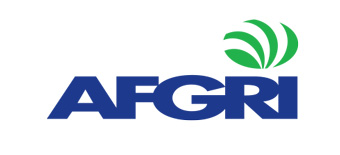National Certificate:
COURSE DURATION
1 Year (4 months theory and 6 months practical)
NQF
Level 2
PRICE
R26 250.00
LANGUAGE
English
VENUE
Lemang Training Farm: Vastfontein
Pretoria North, Plot 130 Alpha Road, Vastfontein
PURPOSE OF QUALIFICATION
Learners will have the necessary competence to participate as part of a working team, performing the agricultural processes as applicable to both Plant- and Animal Production. They will be able to perform directed activities and take responsibility for the guiding others at lower level within a mixed farming context. Learners will also gain competency in a combination of the sub-fields of Plant and Animal Production as specified under Areas Of Specialisation (i.e. Small Stock, Large Stock as well as Vegetables, Fruit Production, Hydroponics, etc.)
Furthermore, learners will be able to take responsible decisions within a familiar range based on a sound understanding of the basic principles of agribusiness and good agricultural practices, in meeting the set objectives and targets within the broader farm plan, which includes the economical application of general resources, agricultural production and technical knowledge and skills, all in Mixed Farming context. They will be able to carry out familiar procedures in a limited environment and will be able to adhere to the relevant safety, quality, hygiene and technical standards as applicable within the industry.
In addition to the above, learners will be well positioned to extend learning and practice into other sub-fields such as Plant Production and Animal Production, since such efforts will only require additional learning within the elective scope of other qualifications at this level. They will also be well positioned to progress towards higher levels of Management and Technical production practices as defined by qualifications at the next level.
Learners will be enabled to actively participate in the Primary Agricultural Sector through the production of quality agricultural products, enhancing the overall agricultural process and gain opportunities to access local, national and international agricultural markets.
This qualification will allow qualifying learners to become economically active in farming practices that will have a direct impact on local economic development through the production of food, the improvement of household food security, and access to mainstream agriculture.
Finally, learners will be able to guide and direct others in terms of the implementation of smaller development projects within Mixed Farming context.
Sound like the right course for you?
If you think this is the right course for you, then please get in touch with Juanita Demas Training Coordinator at Lemang Agricultural Services.
Juanita Demas
T +27 11 063 2210
juanita.demas@afgri.co.za
*Please note that each course is dependant on a minimum of 15 students before commencement date.
MODULE 1: AGRI-BUSINESS
- Apply marketing principles in agriculture
- Control inputs and stock in agribusiness
- Identify and recognise factors influencing agricultural enterprise selection
- Illustrate and understand the basic layout of financial statements
- Operate and support a food safety and quality management system in the agricultural supply chain
MODULE 2: AGRICULTURAL PRACTICES
- Apply layout principles for conservation and infrastructure
- Explain principles of human resources management and practices in agriculture
- Monitor water quality
- Utilise and perform minor repair and maintenance tasks on implements, equipment and infrastructure
- Recognise and identify the basic functions of the ecological environment
- Participate in agri/ecotourism practices at both micro and meso levels for tourism purposes
MODULE 3: ANIMAL PRODUCTION
- Apply animal products harvesting procedures
- Administer livestock processing treatments
- Respond correctly to control defensive behavior in animals
- Understand animal nutrition
- Explain basic pig husbandry practices
MODULE 4: PLANT PRODUCTION
- Apply crop protection and animal health products effectively and responsibly
- Apply sustainable farming practices to conserve the ecological environment
- Consider plant botany during the placement of beehives
- Define and understand production systems and production management
- Control pests, diseases and weeds on all crops effectively and responsibly
- Monitor the establishment of a crop
- Apply plant manipulation methods
- Understand basic soil fertility and plant nutrition
MODULE 5: COMMUNICATION
- Access and use information from written texts
- Maintain and adapt oral communication
- Use language and communication in occupational learning programmes
- Write for a defined context
MODULE 6: MATHEMATICS
- Apply basic knowledge of statistics and probability to influence the use of data and procedures in order to investigate “real life” related problems
- Demonstrate understanding of rational and irrational numbers and number systems
- Measure, estimate and calculate physical quantities and explore, describe and represent geometrical relationships in two dimensions in different life or workplace contexts
- Monitor, collect and collate agricultural data
- Use mathematics to investigate and monitor the financial aspects of personal and community life
- Work with a range of patterns and functions and solve problems



